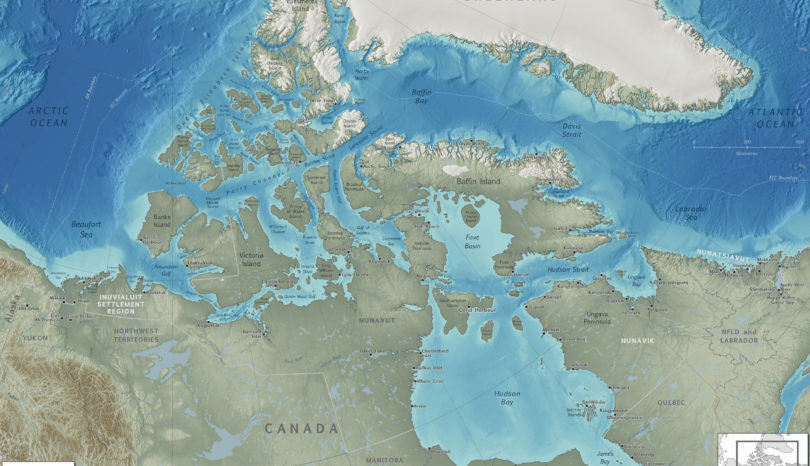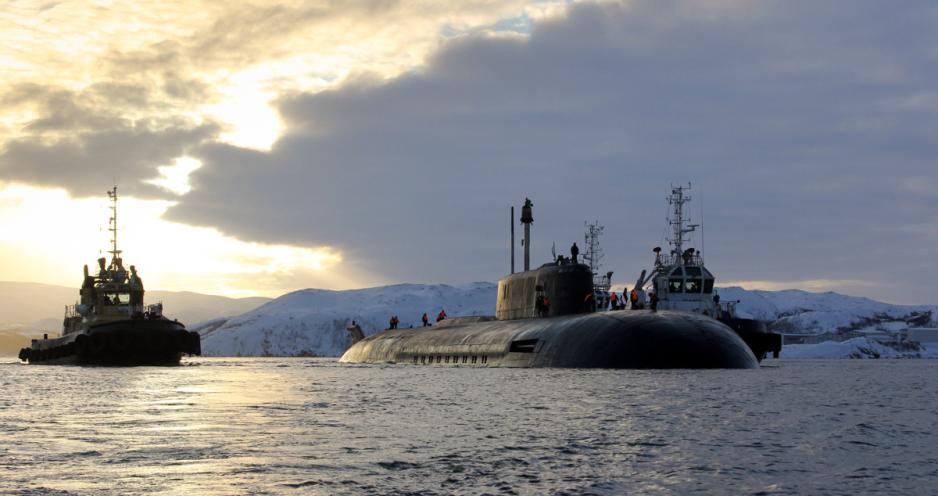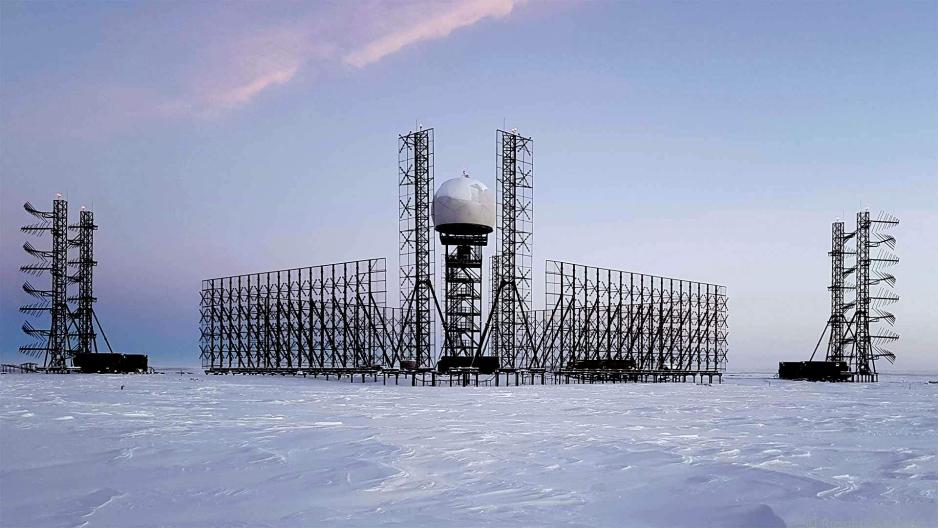Canada's Arctic Geopolitical and Environmental Interests
| Reuters |
"[The move back to Ottawa would] allow the team to better co-operate with other government departments and agencies, enhance our capacity to deliver on the department's international Arctic mandate, and strengthen implementation of the International Chapter of the Arctic and Northern Policy Framework.""We will continue building upon the good relationships formed through the Canadian International Arctic Centre, many of which are with Northern Canadians, while our global mission network will continue to advance Canadian Arctic interests abroad.""Canada's priorities in the Arctic Council are to maintain a strong focus on Arctic peoples and communities, particularly on sustainable development and environmental protection issues, with our State and Indigenous partners.""This includes strong support across the Arctic for continued climate change action, and effective and meaningful participation of Indigenous peoples at the Council."Charlotte MacLeod, spokesperson, Global Affairs Canada
"This decision truly makes no sense. It runs so counter the process announced by the minister not to focus people in Ottawa This was an excellent opportunity for the minister to put words to action and use the Canadian International Arctic Centre in Oslo, Norway as a model.""[Canada's national interests are] in play [when considering the country's presence in Nordic countries and Arctic multilateral organizations].""We should be building that capacity. Part of the problem has been that organizations like the CIAC have been whittled down over the years."Artur Wilczynski, former Canadian ambassador to Norway"[The centre focuses on Canada's participation in the Arctic Council, but is] equally focused on other multilateral, regional, and bilateral Arctic-related tasks, in collaboration with other similarly interested groups in government, private security, and civil society.""Another advantage of being based in Norway is the access we have to research institutions and NGOs. [Norway is a] key hub for the international Arctic agenda.""It's immensely helpful to keep up with current projects and happenings, and to create bilateral connections with Canadian partners in science, technology and academia, and social and cultural work."Bob Paquin, former CIAC head
 |
| Canada's Arctic Marine Atlas |
Over the past eight years under this 'post-national', progressive government, Canada's government departments appear to have stagnated, a result of disinterest on the part of its executive office holders and lack of familiarity and direction by the prime minister of the day. The previous, Conservative-led government identified a need for Canada to pay more attention to its Arctic holdings, commissioning a series of Arctic vessels including ice-breakers. The government led by Justin Trudeau has its focus on climate change almost to the exclusion of all else, but for his promotion of equity, diversity, inclusion.
Canada's former department of Foreign Affairs, renamed Global Affairs by a prime minister who likes to put his personal stamp on everything to distance any advances or civil measures instituted by his conservative predecessor, has been criticized for floundering, for failing to make a mark internationally, despite Justin Trudeau's famous chirp abroad that "Canada's back!" under his flawless steering. A steering of the ship of state that led to a diminished quality of administration of the country's value system and culture which the current prime minister claims to be nil.
He is attending a meeting of Nordic leaders in Iceland as a special guest where he took to the podium to lecture his peers on the environment. At a time when, partially due to poor forest management, Canadian out-of-control wildfires are sending carbon and particulate matter all over North America and Europe. His appointee as Minister of Global Affairs, Melanie Joly, several weeks back pledged to increase Canada's presence abroad.
More recently she announced to a disbelieving coterie of Arctic experts that she has decided to close Global Affairs' Canadian International Arctic Centre in Oslo, repatriating its chief to Canada, and presumably firing local staff working at the Oslo-based CIAC. It is a decision that seems to fly in the fact of a general agreement and intention to proceed with a major overhaul of the department she leads. Global Affairs Canada's own review notably found that considerably less is spent on foreign affairs, trade and international assistance per capita than many of its global peers, with less diplomatic presence abroad than its G7counterparts.
"Canada's overall presence and ability to exert influence abroad has not kept pace with evolving global realities.""While advances in technology offer new possibilities for virtual and hybrid global engagement, strengthened presence on the ground is require to report, advocate and represent Canada's strategic interests where it matters most.""[Global Affairs Canada should ensure the] adequacy of resources dedicated to the work of the Arctic Council."Global Affairs Canada's report Future of Diplomacy
 |
| The nuclear cruise missile submarine of the Northern Fleet "Oryol" at the permanent base. (Source: Andrey Luzik) |
A key part of what the CIAC does is the support of Canada's work at the Arctic Council. The centre is one of two divisions carrying out Arctic engagement for Global Affairs. In 2016, GIAC maintained staff in both Washington and Moscow. A transition over the years saw all of CIAC's staff located in Oslo. Now, they're being redirected to Canada. Ironically, during his meeting in Iceland with Nordic prime ministers, Canada's Justin Trudeau insisted on the importance of the Arctic for Canada's geopolitical and environmental interests.
 |
| Rezonans-N over-the-horizon radar in the Russian Arctic. (Source: Courtesy of Rosoboronexport) |
Not to be overlooked is the fact that the Arctic represents a key line of defence for Canada from potential Russian aggression, given the very real fact of Russian President Vladimir Putin's steady-paced increase of his country's presence in the North. Mr. Putin has made no secret of the fact that the natural resources in the Arctic are of great extraction interest to him. Old, Soviet-era military bases in the Russian Arctic have been refurbished in the last few years and are actively in use now as manned military stations.
 |
| Svalbard’s ground station, SvalSat, downloads time-sensitive data from most of the world’s commercial and scientific satellites, but not from military missions, its operator says. Source: Kongsberg Satellite Services |
"Canada is a natural Arctic country. We're in NATO, interested in Arctic science and permafrost. The US is getting interested in the Arctic, China's coming across the Arctic. So many parts of the world are important, but ... the Arctic should be far more central to what we're doing in general, and particularly in foreign and defence policies.""Are we really taking the Arctic seriously when we close an office in one of the most important Arctic regions with our NATO partners and our Arctic Council partners?"Tom Axworthy, Arctic expert, chair, Public Policy, Massey College
Labels: Canadian Arctic, Canadian International Arctic Centre, Global Affairs Canada, Oslo Norway
0 Comments:
Post a Comment
<< Home